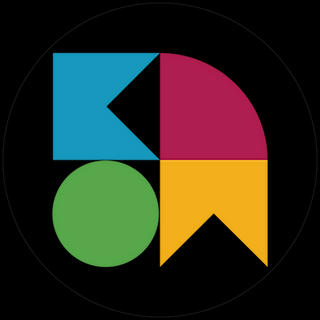Reflections from KNOW Annual Workshop, 2021
- Urban-KNOW
- Apr 21, 2021
- 5 min read
By Ruchika Lall (WP5, IIHS Researcher); Wilbard Kombe, Alphonce Kyessi and Tatu Mtwangi-Limbumba (Dar es Salaam City Team, Ardhi University).
As the world remains engulfed in the COVID-19 pandemic, the crisis of urban inequality is more than apparent across the world. In the past year we have seen the differential impact of lockdowns to contain the pandemic, health risks, loss of livelihood, and absence of food security. While the COVID-19 pandemic has made apparent the cracks in our institutions and systems across governance, finance, education, health and basic services among many others, it has also pronounced and highlighted the drivers of inequality across cities - exposing the deeply entrenched inequalities that have for so long been considered normal.

The research through Knowledge in Action for Urban Equality (KNOW) on how we learn about inequality, name it, pay attention to it, identify its drivers and shape pathways to change, remains particularly relevant. Over the last few years, City Partners, across geographies and several research streams, have focused on this interrogation and proposition through work packages on City Knowledge Coproduction and a Comparative Inquiry for Urban Equality with attention to cities of Lima (pictured left), Havana, Freetown, Dar-es-Salaam, Kampala, Da Nang, Nakhon Sawan, and Yogyakarta. Partners have also deepened an inquiry of the Ethics of Research Practice, Translating research into Practice, the role of Higher Education and Translocal Learning, and expanding UK ODA Research capacity for urban equality. Using a flexible framework that builds on a social justice framework of polity of participation, reciprocal recognition, equitable distribution and the role of solidarity and care, partners have entered through a site or question often focusing on one such dimension, touching upon others, and explored the contextual interrelation across these four dimensions. Over the last year through the pandemic, partners have also modified courses of action, with attention to the role of solidarity and care and the relational and temporal nature of participation, distribution, recognition and care.
In February 2021, The KNOW project met for a penultimate annual workshop, for partners to come together to share what they have been learning, as a week of reflection and to articulate and structure the work ahead. The week was important because it allowed partners across the world to come together, discuss their findings, research and challenges. Attended by 52 researchers coming from across the continents, the structuring was different than previous workshops, with an a-synchronous week before, followed by a synchronous week online. This arrangement also allowed partners to further understand each other’s work and prepare before the synchronous week online. The week was structured over the days to reflect on what we are learning about urban equality, the pathways and drivers across scales and geographies, methods and ethics of practice, the legacy of the project and how work being done by partners are conceptually and methodologically interconnected. The week allowed for concentrated reflections, across different aspects to highpoint to emerging themes through the research, and steps ahead into the coming year.
Above: We asked the KNOW Team to share their remote-call locations and reflections from the Annual Workshop. A selection of these are presented in the gallery above. (click to view in full-screen)
Building a grounded vocabulary, knowledge coproduction and why that matters for global targets
Discussions through the week reflected on how the global targets such as the SDGs often miss the ‘every day politics of inequality’ on the ground, and it is imperative to build a vocabulary around urban inequality that is driven from local communities, local governments and contextual processes. It is imperative to listen to what sites, cities and the ongoing research is revealing about urban inequality – that is contextual, differential, and intersectional. Discussions revealed how the emerging research through KNOW is significant and valuable for adding detail to what we knew earlier, and importantly, making visible what was invisible, connecting to structural drivers and hierarchies of power at local and global levels. The research across geographies captures a diversity and complexity of the different dimensions of inequality, their inter-relation and intersectionality, as well as propositional ways forward that are localised and contextual and can speak to pathways forward. While frameworks of economic, social and environmental justice have been key to framing a conceptual and theoretical inquiry around inequality, for KNOW the question of how these play out in space, time and across scales geographically is significant. Here, the question of their epistemic justice is crucial. It is from here, that building a vocabulary around inequality, its drivers and propositions forward, that listens to processes that are localised, contextual and often rendered invisible, is significant.
The relationship between epistemic justice, methods and ethics
What have we learnt about research and capacity building methodologies and the ethics of practice? Through the week of discussions partners reflected on breadth of methodologies in the project and ethical moments in them, the relationship of methodology and ethics of practice. Reflecting on how epistemic justice is pivotal to building knowledge and pathways towards urban equality, partners also discussed how methods are often deeply rooted in disciplines, lived experiences and positionalities. What does co-producing knowledge and listening to multiple forms of knowledge look like?
The rich range of research methods tabulated and discussed through the weeks across research streams included mapping of institutions and actors, building platforms, interviews, focus groups, workshops, propositional research, trajectories and reflection, coproduction among many others. KNOW researchers discussed how a practice that is reflective and reflexive of positionalities and that pays attention to the multiple forms of knowledge and the concerns of epistemic justice is important in this work. Particularly paying attention to critical and ethical moments during the research, both before and during the pandemic, partners reflected together on methodologies and ethics through a frame of ‘hotspots, blindspots, touchstones and moonshots’ based on the work from the research stream on ethics of practice, which also shared a valuable lexicon and protocols ethics developed through the ongoing work.
Drivers of inequality and pathways towards urban equality
The discussion through the workshop also emphasised the importance of paying attention to the drivers of inequality and pathways to shift the discourse and practice, by recognising a system and inter-relational approach. Within this, attention to the dimensions of space, time and scale are particularly significant. Reflecting on impact achievements, critical moments and underlying conditions through different streams of research, and discussions thereafter, partners shared what we have learnt together about pathways to urban equality at different scales.
Overall, across discussions a few key pathways are significant. These include recognising and building the capacities of platforms, local government and research teams, enabling reciprocal learning, making inequalities visible and changing narratives, engaging across scales and systems, building on feminist perspectives and the differential impacts and intersectionality. We also discussed the presence of the pandemic as a crucial experience in understanding the irreversible dimension of such inequality, and how this experience has highlighted several concerns, as well as the importance of changing plans and strategies. The partners also reflected on the importance of learning from both successes and ‘failure’, and the importance of institutionalising processes, reinventing urban education, and the methodologies to do so.
KNOW LEGACY
The partners discussed these ways for collaboration - building and sharing knowledge in action for urban equality, the project outcomes and intended legacy. Apart from enormous contribution in form of scholarly publications, policy briefs, podcasts, visual materials and cross-sectoral networks engendered over the last three years, the Annual Conference provided an important platform to reflect upon the legacy of KNOW locally, nationally, regionally and globally. To this effect the legacy of KNOW include: internalising principles and practices that promote urban equality among local and national institutes supported by urban learning hubs. Another important area concerns sustaining transformative research capacity component on urban inequality and contributing: i) to reforming planning education and theory on knowledge co-production; ii) to national and global policies i.e. SDGs; iii) to relevant data and information. In addition, papers published are used in University teaching programmes at both undergraduate and postgraduate. Early career researchers involved in KNOW build their future work on the methodology and concepts advanced in this research.
Title image: Joining the Annual Workshop remotely from Punta Hermosa, Lima. Image by Belen Desmaison
Further Links:












































Comments